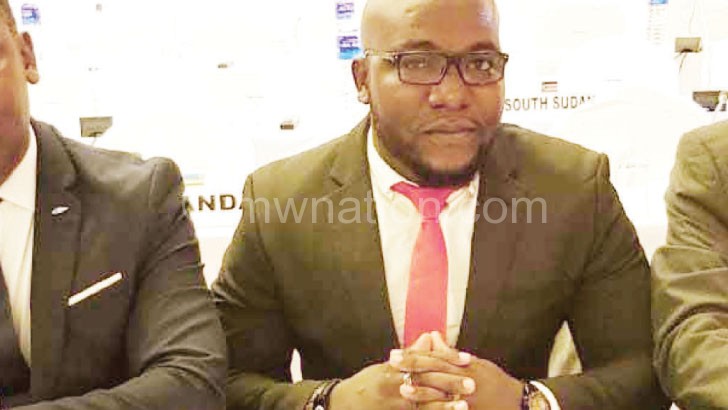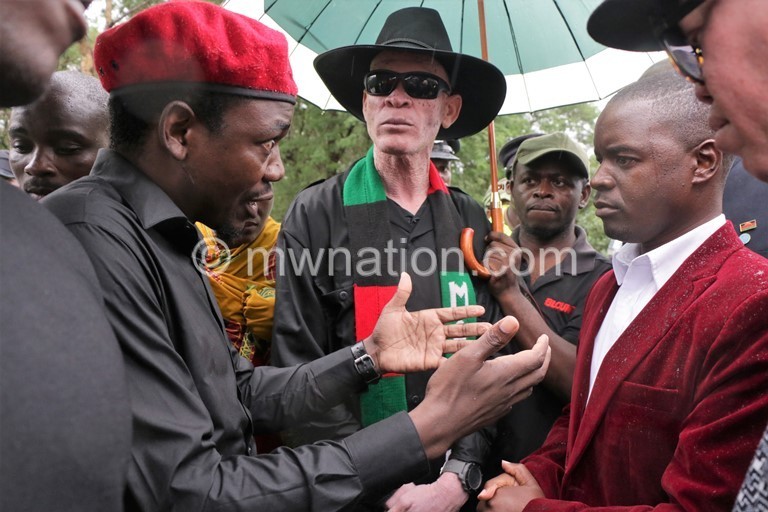Who buys albino parts?
Three of four inquiries done on attacks against people with albinism have failed to establish the existence of a market for albino parts, reveals Nation on Sunday.
These revelations come from an May 4 2016 investigative research commissioned by Unicef and Department of disability and elders affairs; an October 2016 Malawi Human Rights Commission public inquiry; a March 2018 study done by Redson Kapindu for Unicef; and a March 2019 joint Parliamentary Committee addressing violence against people with albinism in Malawi.

Three of the four inquiries done in the last three years—have failed to conclusively state where the market and buyers are.
The 2016 Investigative Research on the Abductions, Killings and Exhumation of Remains of Persons with Albinism commissioned by Unicef is the only study that confirms the existence of a market, based on testimonies from participants of the inquiry.
The report identifies businesspersons, fishers, farmers and witchdoctors as perpetrators of the heinous crime. It says the syndicate involves a chain of people, which include financier, middlemen and henchmen.
“It is becoming increasingly difficult to identify the financier and the middleman. Most of those caught and sentenced are henchmen. It has also been established that middlemen follow coded instructions using mobile phones and do not deal directly with their financiers,” reads the Unicef-commissioned report.

Unlike other reports, this inquiry has a strong conviction of the presence of a market for albino body parts in Malawi, Tanzania and Mozambique.
“There is compelling evidence that there are secret markets both inside and outside the country, where the body parts of persons with albinism are sold. This has been confirmed by police officers and prisoners,” reads part of the findings for the study.
The Malawi Human Rights (MHRC) Report based on a public inquiry in the same year (2016), agrees with the Unicef-commissioned report that ignorance and poverty were reasons which fuelled attacks against people with albinism, but is not conclusive on the existence of a market.
The MHRC report, finalised in August 2017, which we have sourced but is yet to be made public, recommends an anthropological study, specifically to look into the issue of the market.

“Evidence from suspects who are in the hands of police and convicts has not revealed the exact markets for body parts of PWAs. It should also be noted that countries neighbouring Malawi also believe that the market exists in Malawi.
“….the commission, therefore, recommends an anthropological research to expose the market,” reads the MHRC report which dissuades any assumption that the police and convicts know about the buyers.
Currently, there is pressure on government to do more to find the market for albino body parts.
A few days ago, an audio clip from an alleged suspect of albino killing went viral on social media implicating some senior politicians and businesspersons to have been behind the killing of people with albinism.
Police are currently investigating the source of the audio and our sources indicate that two senior Legal Aid Bureau officers were questioned by police over the audio clip, a claim we could not independently confirm with the bureau.
The bureau is representing some suspects in connection with the killing of 22-year-old man with albinism Macdonald Masambuka in Machinga last year.
Last Friday, police in Machinga detained UTM director of youth Bon Kalindo allegedly in relation to the same audio clip.
According to the joint parliamentary inquiry report presented in Parliament last week, one objective of the investigation was “to follow up and unearth revelations of the location of the ‘market’ where body parts of victims are taken”.
“Throughout its consultations with the various stakeholders, the committee failed to come up with a concrete answer on the existence of and location of a specific ‘market’ for the crimes.
“Across the country, it has widely been discussed that the crimes are fuelled by the existence of a big market, where body parts and bones of persons with albinism are adequately handsomely rewarded,” reads the report from the 15-member joint parliamentary committee.
The report indicates that police and intelligence institutions in the country have failed to establish the truth on the existence and location of this market. This has followed intensive investigations and inquiries among key witnesses and suspects.
“The committee noted with concern, that this challenge has been further compounded by the loss of lives of several key suspects, before they could clearly explain their destination and intentions with body parts.
“To complicate this matter, some apprehended suspects have parts to a market in Mozambique and Tanzania. However, reports from those countries, point to suspects stating that the said market operates in Malawi.claimed to be taking the body
“Sadly, the committee noted that some suspects that have given information to police, have committed the crimes with no market at hand. Instead, there are some crimes that have taken place with the hope that a market will be identified once the bones and body parts are on hand. The country has, therefore, witnessed a lot of these crimes of opportunity,” further reads the report.
The MPs have recommended joint investigation between Malawi and neighbouring countries, often mentioned by suspects, to put to rest the issue of market, which if not conclusively dealt with would continue to put PWAs at a risk.
However, given that three probes have not established anything tangible, people are asking whether Mutharika’s inquiry will make a difference.
Commenting on the matter on Satur
The coalition also questions the calibre of people appointed.
In an interview on Saturday, HRDC chairperson Timothy Mtambo said the President’s probe team needed more people with relevant expertise to unpack this complicated issue.
He also took a swipe at MHRC and other organisations which have conducted studies on the matter, but have not publicised the findings.
“This inquiry [President’s] and those conducted before seem to have been established to simply hoodwink the public that someone is doing something,” said Mtambo.
He added that he is not surprised that they are failing to find the market, when suspects say there is one.
“It appears everyone who is willing to investigate this matter is somehow manipulated to do the obvious. We see a lot of fear among people and this issue has become too sensitive. We think we need independent investigators from outside to help because the local system has failed us,” he said.
However, the leadership of the Association of Persons with Albinism in Malawi (Apam) has welcomed the presidential initiative, saying the puzzle remains, so any effort towards finding an answer to it is welcome.
But Apam chairperson Overstone Kondowe agrees with Mtambo that the effort needs people with specialised knowledge.
“We need an undercover operation like the Americans used to track down Osama Bin Laden. We may need to cooperate or seek support from credible institutions with vast experience in underground investigations such as the FBI or Scotland Yard,” he suggested.
Commentators believe that unearthing the market would be key in cracking down the malpractice which has left at least 24 people with albinism dead, and many others injured since 2014.
The President’s commission, which started work on March 5 2019 and is expected to submit its by April 30.





